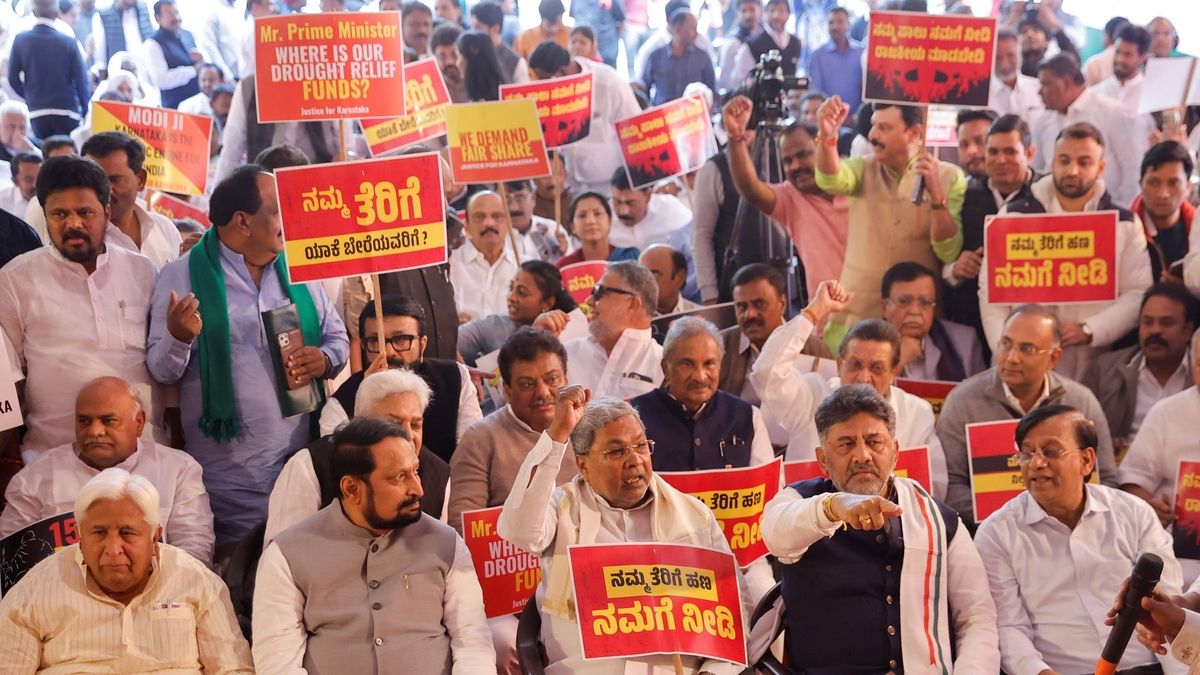Chief Ministers of Kerala Pinarayi Vijayan and Karnataka Siddaramaiah joined protests in Delhi that brought attention to the ‘economic injustice’ that southern states face. Prime Minister Narendra Modi attacked the Congress, saying they were trying to create rifts between the north and the south, as a result of the protests’ profound impact on the government.
He bemoaned the rhetoric being used, urging caution against storylines that would further splinter the country. Finance Minister Nirmala Sitharaman responded to charges of prejudice by referencing the Finance Commission’s recommendations and asserting that tax allocations are determined arbitrarily and that discretion is not permitted.
Such allusions to formalities, nevertheless, are not likely to ease the resentment of the offended governments. The government of the Bharatiya Janata Party (BJP), which is adept at appealing to emotions rather than reason, has frequently used emotional appeals in its political speech. Further inflaming animosity in the southern states are its acts, which include controversial remarks about Hindi and the adoption of untranslatable Hindi names for laws. The BJP is also criticised for its part in escalating emotions in the south.

Source: BNN Breaking
Governors appointed by the party in states where the opposition is in power are seen as instruments of the national government used to topple elected non-BJP governments in the South. As a result, the administrations and populace of the southern states have a great deal of animosity towards the Center, especially the BJP.
Although a fair distribution of tax income among the states is mandated by the principles of a federal union, a transparent reevaluation is demanded to guarantee fairness and acceptance by all stakeholders. It is important to keep in mind that Modi has already expressed worries on fiscal unfairness, especially while serving as Gujarat’s chief minister. His prior support for giving states a bigger portion of tax revenue highlights the necessity of reassessing the existing allocation standards.
Tax devolution to southern states has been trending downward in recent years, according to data from several finance commission studies. This decrease calls into question the weighting formulas and criteria that the Finance Commission used to determine allocations. Notably, there has been criticism around the use of 2011 Census data instead of 1971 Census data, with some arguing that this unjustly benefits states with greater populations.
Source: Moneycontrol
Fund allocation inequalities, wherein northern states receive a considerably bigger proportion than their southern counterparts, serve to promote the appearance of prejudice. Discriminatory feelings are exacerbated by these disparities, especially when combined with the BJP’s hegemony in the northern Indian states.
It is impossible to ignore how anti-Centre sentiment in the South could affect Modi’s chances of winning as the general elections draw near. In this sense, the Southern states have leverage that they can use to forward their own agendas. In the end, attaining national unity necessitates more than formal explanations—it takes sincere attempts to resolve complaints and guarantee fair treatment for every state.
What do you think about this? Comment below.

